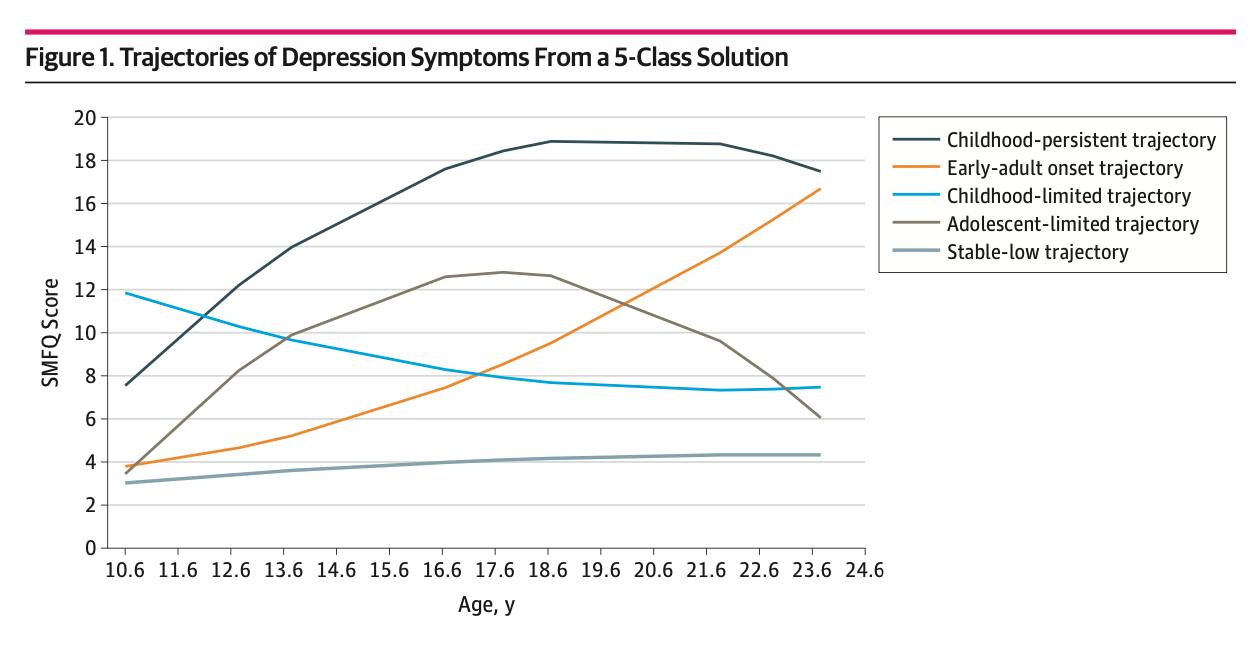As part of Depression Detectives, we’re holding weekly Q&As with scientists and experts who work on depression or related topics. Our Q&A last week was with Charlotte Huggins, a researcher with Generation Scotland.
Charlotte is currently working on a project called TeenCovidLife, examining how the well-being of young people age 12 to 17 in Scotland has been affected by the COVID-19 pandemic. If you’re aged 12-17 and living in Scotland, you can get involved here.
Q&A
Hi Charlotte!
Charlotte: Evening all! I’m Charlotte, a researcher with Generation Scotland. I work on the impact of the pandemic on mental health, particularly in teens. I’m also really interested in mental health in autism, and the role of emotion. Before the pandemic, I also worked in Japan for a couple of months! Now I’m working at University of Edinburgh.
Depression Detectives member C (DD C): We had a bit of a discussion in our group about what’s the worst for kids in Covid-times, and some felt the rhetorics around “falling behind” education-wise is impacting kids more than anything else these days. Is that something you’ve found in your studies?
Charlotte: That’s an interesting point! We don’t have data on that exactly, but I do personally think the relentless doom-and-gloom around young people’s education might be counter-productive. After all, especially for teenagers, the standards they should be ‘at’ at every stage are something we invented! I think instead of frightening young people with prophecising, we should focus on making positive changes to support their education and mental health in these difficult times.
DD I: From the main group:
Are there links between autistic traits and depression (and/or autoimmune conditions and/or somatic conditions)? Autism being the particular point of interest.
Charlotte: I can’t speak to autoimmune conditions/somatic conditions (not something I’ve ever looked at!) but there are definitely associations between autistic traits and depression. Autistic people have much higher rates of anxiety and depression compared to non-autistic people. And in non-autistic people, higher autistic traits is likewise associated with mental health difficulties.
DD C: Do you know anything about reasons for these higher rates? For example, does it have something to do with how the mind is wired, or how much difficulty people with autism experience in daily life through stigma, etc.?
DD S: And do we know anything about whether that is something intrinsic to autism, or does it come from the difficulty of navigating the neurotypical world as an autistic person? I don’t even know how you would do research to try to separate those two things!
DD M: My guess would be that society disables autistic people. Everything is geared towards neurotypicals.
It’s still called a disorder, which in itself is stigmatising. I think that professionals in particular need to listen to autistic people
Charlotte: I personally think it’s more to do with being an autistic person in a neurotypical world! Autistic people experience much lower rates of employment and education, suffer from lower self-esteem, and often have difficulties forming and maintaining good social relationships (which are a great protective factor against mental ill health). If the world was made more accessible to autistic people (including improving attitudes towards and understanding of autistic people), I believe much of these issues would improve.
DD S: What are the ‘headline findings’ that Generation Scotland has been seeing in relation to the pandemic and mental health?
Charlotte: This is some analysis I’ve not quite finished yet (so please take with a grain of salt!), but we’ve been finding a definite increase in depressive symptoms during the strictest lockdown measures, which improve as lockdown measures ease. However, anxiety seems to have risen in February, which I wonder if relates to uncertainty around the new variants and vaccine rollout. I’m doing some really exciting stuff with other UK cohorts to find out exactly more about how it’s changed over time, and how it compares to pre-pandemic.
DD C: Really interesting. I’m not very familiar with cohort studies. Do you take “random” things into account such as, say, the weather/time of the year (my mental health is the worst in February)?
Charlotte: It depends on the type of analysis being done! Since we have such big data, many people work on it, and different types of questions require different types of analyses to answer. I’ve personally never used weather/time of year (I imagine pulling in all that data would be difficult) but I’m sure there’d be some fascinating analysis to do there.
DD S: Something came out recently that seemed to show that depression was twice as as high as normal in the first few months of this year. Would your research agree with that? If yes, does it look like people who have previously experienced depression all getting depressed at once? Or is it new people getting depressed?
Charlotte: I’m not sure! We’re working on analysis that is looking at this change over time more closely, but it’s not quite ready yet, so I don’t want to jump the gun. I’d hazard a guess that there was an increase at the start of this year, between the gloomy weather, the increased restrictions, and the fatigue of almost a year under the pandemic. But whether depression rates have doubled, I wouldn’t be able to say!
DD M: What do you think are the differences between children/young people and adults when it comes to how they are affected by the pandemic? Is there anything additional to look at here that might be different?
DD E: I’m wonder if there was any distress apparent in the teens of either Covid or lockdown and the disruption to their education?
Charlotte: I think for young people, the impact on schooling is the biggest issue. Many older teens are experiencing a lot of uncertainty and stress about how this will affect their future job prospects and getting into university. And just getting the placement often isn’t the end of the issues – making friends, forming long-term relationships, settling into your adult life…all of that becomes more difficult when done remotely. I think people in transitionary life periods are probably experiencing very particular challenges.
DD M: Some autistic people might have felt relieved by some of the restrictions during the pandemic. Is there anything we can take from this to aid mental health going forward?
Charlotte: That’s definitely something I’ve seen as well! I think the changes we’ve made in response to the pandemic can be wonderful for autistic people (and many other people beside!) – such as more options for remote working/schooling and reduced crowding in public places. I think moving forward, it would be great to keep these accessibility options in place. We’ve proven now that it is possible to make these changes, and a lot of places now have infrastructure to do so!
DD E: Did you find it more onerous to collect data during lockdowns or was it actually easier to find participants because of lockdowns?
Charlotte: The CovidLife projects (Check out this link for more detail: https://www.ed.ac.uk/…/generation…/covidlife-volunteers) have seen really good returns! I think particularly for Covid-related research, people are keen to participate and have their voice heard.
For projects that can’t be done online, though, it gets much difficult. Just before the first lockdown in March, I was planning a study about interoception (the ability to identify your own bodily sensations). This would have involved me passing the same objects back and forth to participants over the course of an hour! As you can imagine, that never quite came to fruition 😄
DD C: I heard that teenagers’ eating disorders increased a lot during Covid. Have you seen a reduction in this now, since there are less restrictions on kids’ sports and they can go back to school?
DD N: Potentially might be linked to the control element of EDs? With so little control over all the external factors of the pandemic.
DD M: my thoughts too
DD S: Can I just check about how Generation Scotland works. You have a load of people signed up, and you ask them lots of questions at the beginning, and you get access to their medical records? And you also send them more questionnaires from time to time? And then you can basically ask questions of all this data? Like, you could ask it ‘Are people who live near the sea more likely to get depression?” And if they are, you’ve found something out.
And I know the list must be super-long, but could you give us an idea of the kind of data you have about people?
DD E: My question is firstly how you collate your data and when you have gathered it in how you design the data? Hope that makes sense.
Charlotte: Yes, Generation Scotland is a cohort study, so a lot of it is about collecting detailed data. We have some of the most detailed data on our participants in the UK! When GenScot started (back in 2006, while I was preoccupied with being in primary school), participants took part in a clinic visit which involved taking a lot of detailed measurements, and provide genetic samples for analysis. We also link to NHS data. The exciting thing about GenScot is that we’re a family study – meaning people join up as part of families, so we can link their genetic data together. We even have neuroimaging data!
This year, we’re planning a new wave of recruitment. This time, the initial measurements will be done completely online, in our new system. Participants will be sent a kit in the post so they can submit a saliva sample to us for genetic testing.
And yes, the benefit of having such a big bank of data to work with is that we can address many different research questions. Other researchers can apply to use our data (without any identifying data of course!) and answer research questions. There are over 250 publications in academic journals using Generation Scotland data. Here’s a great link if you want to see a bit more: https://www.ed.ac.uk/generation-scotland/what-found
DD S: So what kind of data do you have about people? What questions do you ask them?
I mean, I’m assuming postcode, parents occupations, obv all these samples, but do you give them personality tests? IQ tests? Do you ask them about their hobbies? Pastimes? Diets? Sexual activities? Jobs?
Charlotte: We have a lot of this! We have personality data, cognitive ability data, diet and exercise habit, employment, health history and health behaviours, I don’t think we have data about sexual activity or past-times though.
DD I: We hear alot about young people and social media. Did this come up in your study? I guess it has positives and negatives during lockdown?
Charlotte: We didn’t spend many questions on social media in TeenCovidLife, unfortunately! We didn’t want the survey to be too long. In the first lockdown, about 54% of teens said their social media use had increased. But, after lockdown ease, 50% said they used it less than during lockdown!
DD C: Do you check whether self-reports tie up with other measurements?
DD E: I came across a graphics timeline (link) on Twitter which was amazing.
How many hours and people would be involved in that?
Charlotte: It’s fantastic isn’t it! Amazingly, the majority of that was done by just one of my colleagues. I will definitely pass on your appreciation to her 🙂
DD N: And that’s all we’ve got time for! Thanks so much again for coming Charlotte, this has been really great
DD E: Thank you Charlotte for a very interesting Q&A. Let’s hope we all don’t have anymore lockdowns to contend with even if researchers produce very interesting facts. 😊
Charlotte: Thank you so much! Would it be at all cheeky if I plugged the ongoing work we’re doing for TeenCovidLife?
DD S: Please go ahead!
Charlotte: We’re currently collecting data for our next sweep of TeenCovidLife! If you have or know a 12 to 17 year old living in Scotland, we’d appreciate it immensely if you passed the word! The survey can be accessed here. Questions about exams, school, mental health, and how pets help us in the pandemic (the latter I’m very excited to get data on)




